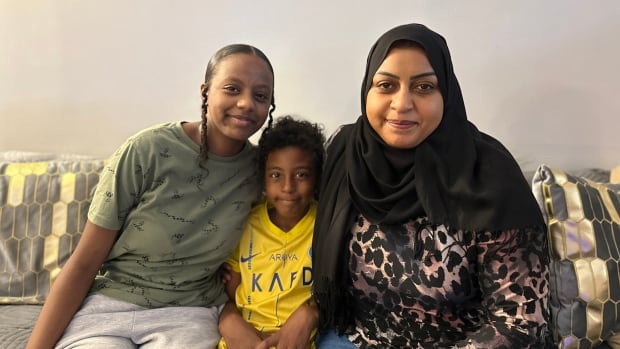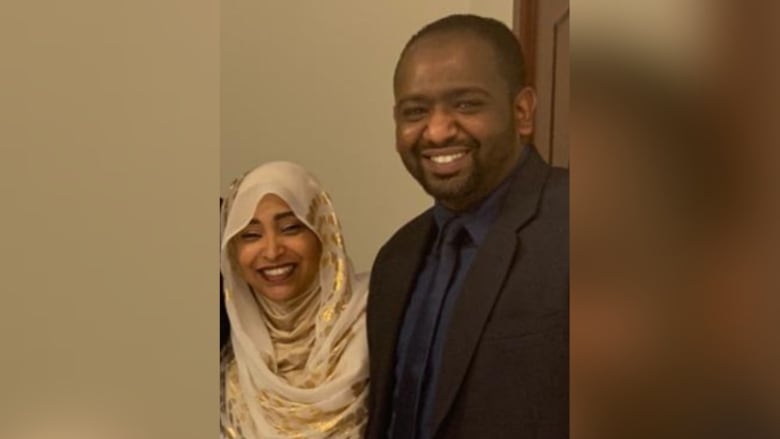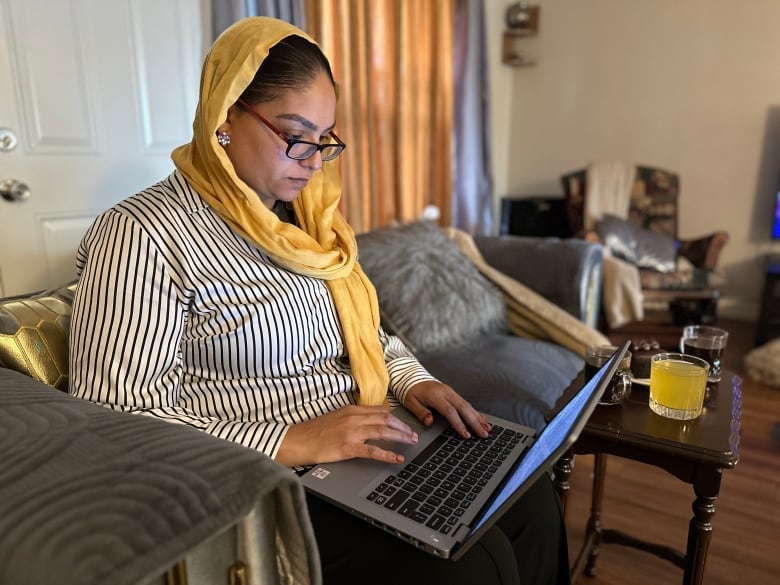
Families in London, Ont., with relatives stuck in war-torn Sudan are calling on Ottawa to urgently speed up the process to bring their family members to safety in Canada.
After spending thousands of dollars on applications for a family-based humanitarian program that launched in February, the families say they’ve received no information from the federal government on when they will be reunited with their loved ones.
In the eight months since, many have had relatives displaced. The families say some of their loved ones have died or been kidnapped by militia while waiting for Immigration, Refugees and Citizenship Canada (IRCC) to process their applications.
“This is designed to be a humanitarian program. These are people fleeing war and they’re not in good shape, so we expect the process to be faster,” said London resident Dina Hamid, who has spent a total of $3,500 in processing fees for her mom, sister and brother.
“The condition keeps worsening in Sudan and we don’t have any answers from IRCC, and until now, not a single person has come to Canada.”
Hamid’s brother, Musaab, 36, stayed behind in the capital of Khartoum to protect their house. Last October, he was kidnapped and detained for five months by the paramilitary Rapid Support Forces (RSF), Dina said. Her mom and sister managed to flee to Egypt, where they currently reside, she said.
A war broke out between the Sudanese Armed Forces (SAF) and the RSF on April 15, 2023. Since then, the United Nations estimated in September, more than 10 million people have been internally displaced and nearly 20,000 have died as a direct result of the violence. Other estimates suggest as many as 150,000 people may have been killed.

The Canadian government opened the humanitarian pathway on Feb. 27, 2024, accepting up to 3,250 applications — a number advocates argue is too low given the situation’s gravity. In May, IRCC reached capacity and stalled the program.
Minimum funds required to sponsor one person is $9,900, plus a processing fee of $635 per adult and $175 per child. Those with a higher income like Hamid, who’s a pharmacist, are only required to pay processing fees if they prove they can financially support family members. IRCC has waived fees for biometrics, right of permanent residence and medical examinations.
On Tuesday, CBC News asked IRCC if any applicants from Sudan have arrived in Canada yet and what’s causing the delay. A spokesperson said on Wednesday they are working on a response.
“The community is exhausted because we’re going through the mental trauma of war while trying to fight our own government here to bring our family to safety,” said immigration consultant Samah Mahmoud, who also has family in Sudan.
‘Not enough political will’
Earlier this month, Mahmoud met with Minister of Immigration, Refugees and Citizenship Marc Miller as part of a Sudanese-Canadian advocacy subcommittee that helps inform Ottawa’s policy toward the immigration pathway.
She described the discussion as “very disappointing.”
“We were promised by the minister’s office that people will be here by the end of this year and latest by next spring, but now, he says only a handful of people will be coming this year,” she said.
“We were furious at this response because we know what they’ve done for other communities and the response was much faster.”

Mahmoud drew comparisons to the 40,000-person capacity for Afghan refugees and the unlimited number of emergency visas that were given to those fleeing the war in Ukraine.
“For them, we might be numbers, but we are actual people and their decisions affect our personal lives,” said Mahmoud. “Unfortunately, we don’t feel there’s enough political will.”
Bahga Elyamani has spent more than $100,000 on applications to bring her stepmother, four siblings and their families to Canada. She applied in April, but her elderly father died in a hospital in Egypt, two months ago after his health deteriorated due to constant displacement.
“Going through that journey of displacement was very traumatic,” Elyamani said through a translator, adding she hasn’t been able to grieve his death because she’s still worried about the rest of her family.
“It’s even more difficult because we have pay for their rent and basic needs in Egypt, but we also have our families here and things in Canada have been expensive as well, so it’s really been a financial struggle.”
Mahmoud said Canada’s humanitarian program for Sudan is set to reopen next month with priority for Quebec and will accept up to 800 new applications, along with the more than 250 that weren’t processed in the previous round.
“These people are qualified individuals who will contribute to our economy,” she said. “We are going to take care of our family and be responsible for them. We’re not asking the government to do anything other than to allow them to come here as soon as possible.”